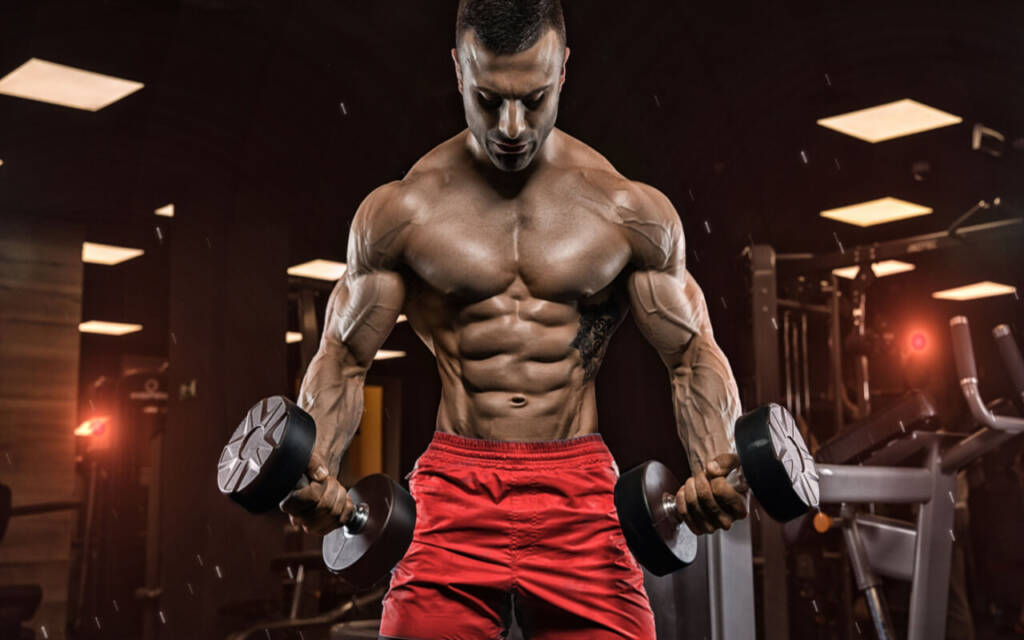If you are a bodybuilder, you have probably heard of the term “supplement”. But what exactly is it? What do they do and how should you use them? Read on to find out.
Supplements can be defined as food or drink that has been specially added (or altered in some way) to give nutritional or physiological benefits beyond those already provided by the primary source of nutrients in our diet. They can also include drugs, vitamins, minerals, herbs, enzymes, amino acids, botanicals, animal products, and many other substances.
The person can take steroids in the form of injections. A person can learn about Crazy Bulk here. This will help the people in getting the detail in an effective manner. In the long run, the option will give him productive results. A person can give try the various option that will give him genuine results.
Because of these broad definitions, there is no standard for what constitutes an acceptable supplement. Some supplements are widely accepted, while others may not even be legal. And yet, for all their differences, supplements share certain characteristics. For example, most supplements contain one or more of the following:
– Vitamins and minerals
– Amino acids and proteins
– Herbs and botanicals
– Fatty acids and oils

There are also supplements that fall outside this general definition of what would constitute a supplement. These include, but are certainly not limited to, creatine, glucose, lactose, and hormones.
Some supplements are marketed directly to consumers, while others are sold only through pharmacies or health food stores. Regardless of where they come from, many supplements have undergone extensive testing before being sold. This means that they are usually safe. However, since the FDA does not regulate dietary supplements, they cannot tell us with certainty whether or not a particular product will work for us.
In addition, because the science of nutrition and physiology is constantly evolving, the quality of the research behind some supplements may lag far behind the science itself. Because of this, we must rely solely on consumer reports when deciding which supplements are worth buying.
The Benefits of Taking Supplements
Supplements can help us achieve a variety of goals. Whether you want to improve your muscle size, strength, or endurance, there are a number of ways they can help.
For example, if you’re trying to bulk up, you might take creatine monohydrate. Creatine is commonly found in meat such as beef and turkey, fish like salmon and sardines, and dairy products like milk and cheese. It’s also present in some fruits and vegetables such as spinach and broccoli.
Creatine works by increasing levels of ATP (adenosine triphosphate), an energy molecule that is essential for muscle contractions. When you consume creatine, it’s broken down into phosphocreatine and adenosine diphosphate (ADP). Phosphocreatine then acts as a reserve supply of ATP for muscles to use during intense exercise. ADP is stored within the cell until needed, at which point it can be converted back to ATP.
By taking creatine, you can increase the efficiency of your workouts and thus build more muscle. Of course, taking it alone isn’t enough. You’ll need to eat plenty of protein and carbohydrates to support its effects. In fact, studies show that combining creatine with carbohydrates may actually stimulate greater growth than either substance taken individually.
Amino acids are another type of supplement that can benefit bodybuilders. There are several different types of amino acids, including leucine, lysine, methionine, glutamine, arginine, and citrulline. The main function of amino acids is to provide fuel to muscles after a workout. They also serve as precursors to important neurotransmitters like serotonin and dopamine, both of which play key roles in mood regulation.
Taking amino acids before or immediately after a workout increases muscle protein synthesis, thereby aiding recovery. In addition, amino acid supplementation has been shown to reduce soreness and inflammation after a workout. In contrast, the opposite is true for athletes who don’t take any amino acids prior to a workout.
Finally, there are fat burners. Many people believe that fat burning supplements like ephedrine and caffeine can help weight loss. While they may indeed make losing fat easier, they don’t necessarily lead to long-term results. In fact, some of them may even cause harm.
Studies show that ephedrine may cause heart problems. Caffeine is also dangerous; it causes dehydration and insomnia, and it interferes with sleep patterns. Moreover, although fat burners may promote better appetite control and increased metabolism, they don’t always result in significant weight loss.
So, while they can help you lose fat faster, they aren’t reliable long-term solutions. Instead, try eating less calories and exercising regularly.
What about supplements that claim to boost testosterone levels? Testosterone is a hormone produced primarily by men, though women produce small amounts of it as well. Levels naturally decline over time, starting around age 30. As we get older, however, testosterone levels tend to drop faster due to a combination of lifestyle factors and declining fertility.

Fortunately, supplements that contain DHEA (dehydroepiandrosterone) and trenbolone acetate can help compensate for low testosterone levels. DHEA is a precursor to testosterone and estrogen, so supplements containing DHEA can help restore natural hormone balance. Trenbolone is an anabolic steroid that increases nitrogen retention and enhances protein synthesis. Studies have shown that taking trenbolone along with testosterone can lead to improved muscle growth.
However, as with all performance enhancers, it is best to consult your physician first. If you decide to go ahead, do so under close supervision. Don’t forget that just because something is legal doesn’t mean it’s safe. A number of products labeled as legal steroids have turned out to be harmful.
Conclusion
With a little knowledge about the various categories of supplements, you’ll be able to choose the ones that are right for you. If you’re looking to add muscle mass, you’ll want to consider taking creatine. If you’re looking to cut fat, you’ll want to focus on amino acids. And if you want to gain strength, you’ll likely want to look into trenbolone and DHEA.
Of course, you could also combine a few of these supplements together. For example, adding 20 grams of whey protein to a meal may help you gain more muscle and speed up recovery between workouts. Similarly, taking 5 milligrams of nandrolone at night may help you lose fat without causing any side effects.
As you can see, supplements can really enhance and improve your training regimen. So, next time you hit the gym, remember to take advantage of all the tools available to you!




